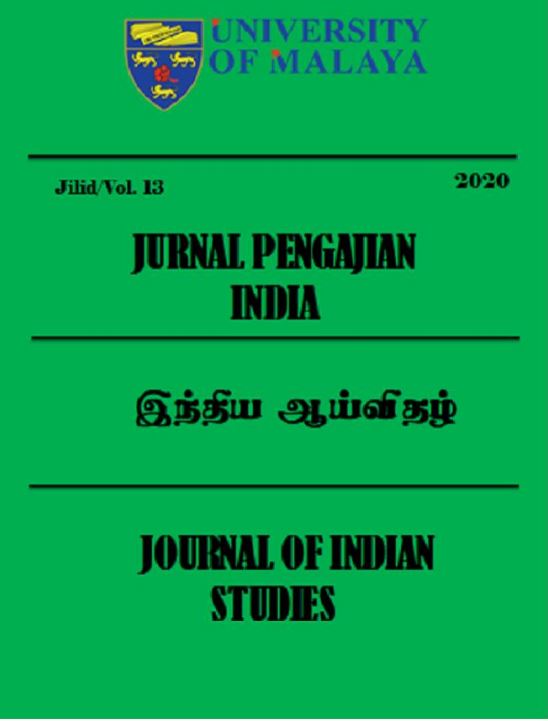Developing confident speakers of Tamil Language in Singapore (சிங்கப்பூரில் தமிழ் மொழியைப் பேசும் நம்பிக்கையான பேச்சாளர்களை உருவாக்குதல்)
Keywords:
Tamil Language, confident speakers, childhood experiences, தமிழ் மொழி, நம்பிக்கையான பேச்சாளர்கள், குழந்தை பருவ அனுபவங்கள்Abstract
Singapore emphasizes a lot on the acquisition of Mother Tongue language due to its role in preserving traditional values. However, a language shift from Mother Tongue towards English is noticeable amongst people from all ethnic groups, especially the Tamil-speaking Indians. This language shift can be detrimental to the survival of Tamil language in Singapore. Therefore, the current study aims to explore the various sociocultural factors such as home, school and community and their effects on Tamil proficiency amongst the youths. 10 youths were interviewed and 50 youths were surveyed. The study found 5 main themes from the interview which include 1) Identity and Culture, 2) Events and Celebrations, 3) Media, 4) Motivation and encouragement and 5) Stereotypes and Values. The main findings from the survey are (1) children whose parents are very supportive of them learning Tamil, would grow up to become confident Tamil speakers, (2) children with very supportive Tamil teachers would grow up to become confident Tamil speakers, and lastly, (3) children are more likely to become confident Tamil speakers when they are highly exposed to Tamil language through community factors such as media and community events. A few ideas have also been proposed to ensure that more children would start developing interest in Tamil Language and therefore, start speaking confidently in the future.
பாரம்பரிய மதிப்புகளைப் பாதுகாப்பதன் பங்கு காரணமாக தாய்மொழி மொழியைப் பெறுவதில் சிங்கப்பூர் நிறைய வலியுறுத்துகிறது. இருப்பினும், தாய்மொழியிலிருந்து ஆங்கிலத்தை நோக்கி நடைபெறும் மொழி மாற்றம் அனைத்து இனத்தவர்களிடையேயும், குறிப்பாக தமிழ் பேசும் இந்தியர்களிடையே காணப்படுகிறது. இந்த மொழி மாற்றம் சிங்கப்பூரில் தமிழ் மொழியின் பிழைப்புக்கு தீங்கு விளைவிக்கும். எனவே, இந்த ஆய்வானது வீடு, பள்ளி மற்றும் சமூகம் போன்ற பல்வேறு சமூக கலாச்சாரக் காரணிகளையும், இளைஞர்களிடையே தமிழ்ப்புலமை மீதான பற்றினையும், அவற்றின் விளைவுகளையும் ஆராய்வதை நோக்கங்களாகக் கொண்டுள்ளது. இதற்காக் 10 இளைஞர்கள் நேர்காணல் செய்யப்பட்டனர்; மற்றும், 50 இளைஞர்கள் ஆய்விற்கு உள்ளாக்கப்பட்டனர். அவர்களிடயே பின்வரும் துறச்சார்ந்த வினாக்கள் கேட்கப்பட்டன; இவற்றுள் 1) அடையாளம் மற்றும் கலாச்சாரம், 2) நிகழ்வுகள் மற்றும் கொண்டாட்டங்கள், 3) ஊடகம், 4) உந்துதல் மற்றும் ஊக்கம் மற்றும் 5) ஸ்டீரியோடைப்ஸ் மற்றும் மதிப்புகள் ஆகியவை அடங்கும். கணக்கெடுப்பின் முக்கியப் கண்டுபிடிப்புகள் பின்வருமாறு அமைகின்றன; (1) பெற்றோர்கள் தமிழ் மொழியைக் கற்க மிகவும் ஆதரவளிக்கும் குழந்தைகள், நம்பிக்கையுள்ள தமிழ் பேசுபவர்களாக வளர்வார்கள், (2) மிகவும் ஆதரவான தமிழ் ஆசிரியர்களைக் கொண்ட குழந்தைகள் நம்பிக்கையுள்ள தமிழ் மொழி பேசுபவர்களாக வளர்வார்கள், கடைசியாக, (3) ஊடகங்கள் மற்றும் சமூக நிகழ்வுகள் போன்ற சமூக காரணிகளின் மூலம் குழந்தைகள் தமிழ் மொழியை அதிகம் வெளிப்படுத்தும்போது அவர்கள் நம்பிக்கையுள்ள தமிழ்ப் பேசுபவர்களாக மாற வாய்ப்புள்ளது. அதிகமான குழந்தைகள் தமிழ் மொழியில் ஆர்வத்தை வளர்க்கத் தொடங்குவார்கள் என்பதையும், எதிர்காலத்தில் நம்பிக்கையுடன் பேசத் தொடங்குவதையும் உறுதிசெய்ய சில யோசனைகள் முன்மொழியப்பட்டுள்ளன.

